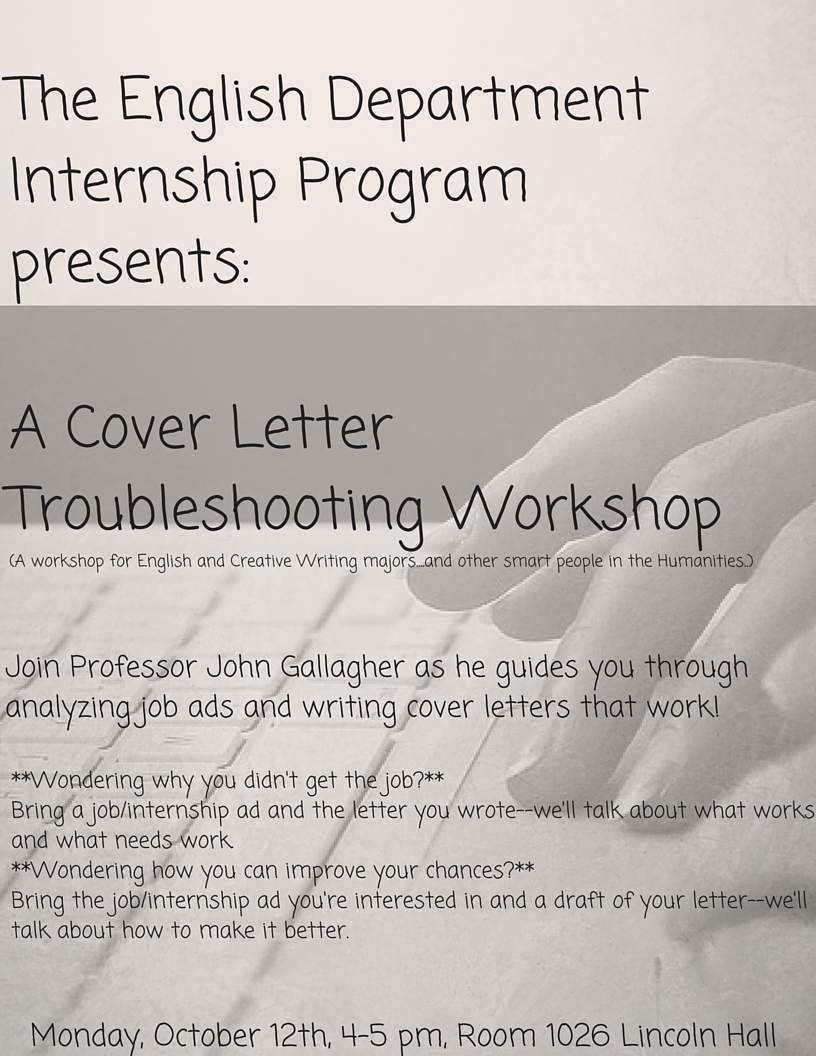
Career-planning in the humanities is a spiral, not a line.
College students who have dreamed since childhood of a career in mechanical engineering or accounting may experience their future as an arrow that the present shoots into the future: a course in X is followed by an internship doing X at Y company, which then leads to a full-time job at Y.
It doesn’t work like that in English.
There are lots of reasons to do an internship if you’re an English major, but most of them don’t come with the expectation that the internship will relate directly to your coursework and lead to a job doing exactly that thing.
An internship with the Office of Communications for the Institute of Amphibious Basket-Weaving is NOT the path to a career in Amphibious Basket Weaving–or in Underwater Basket Weaving or in Land-Based Basket Weaving. Nor does helping to edit The Soil Science Sonnets Quarterly limit you to a career in soil science or sonnets. The key words? “Communications” and “editing.”
In your courses, you’re honing a wide range of transferable skills: you learn to wrestle with dense and complex texts, to take complicated ideas and explain them simply, to articulate and defend your own interpretations but also to listen carefully to others and incorporate their insights into your thinking, to define problems and identify the information you’ll need to solve them. to break down a daunting task into manageable steps. These are all things you get better at by working with and creating literary texts–but employers don’t necessarily know that. They don’t care particularly in what you majored in–they just want to know what you can do.
An internship can demonstrate that you understand the range of tasks that fall under the heading “editing” and you know which one’s you’re good at. That you understand what an Office of Communications does (and EVERY organization or business has one, though it goes by different names) and you can describe the contributions you can make to it. That you’ve used your excellent teamwork and problem-solving skills in a professional setting and are prepared to do more of the same.
By majoring in English or Creative Writing, you have given yourself a wide-open choice of careers. There is no line directing you to work with words in a particular way for a particular kind of business. You have command of the verbal medium that is indispensable to every human endeavor, and it’s up to you to figure out how you want to be paid to wield your power. An internship won’t narrow your choices, but it can help you figure out the future you want, and bring it into being.
 A BA from the English department can be preparation for a career in politics. Kelly Burke, one of the panelists for our 2015 Department of English Career Panel, represents the 36th district in the Illinois General Assembly; she also chairs the IGA committee on higher education.
A BA from the English department can be preparation for a career in politics. Kelly Burke, one of the panelists for our 2015 Department of English Career Panel, represents the 36th district in the Illinois General Assembly; she also chairs the IGA committee on higher education. y that Springfield offers a number of employment and internship opportunities.
y that Springfield offers a number of employment and internship opportunities.

